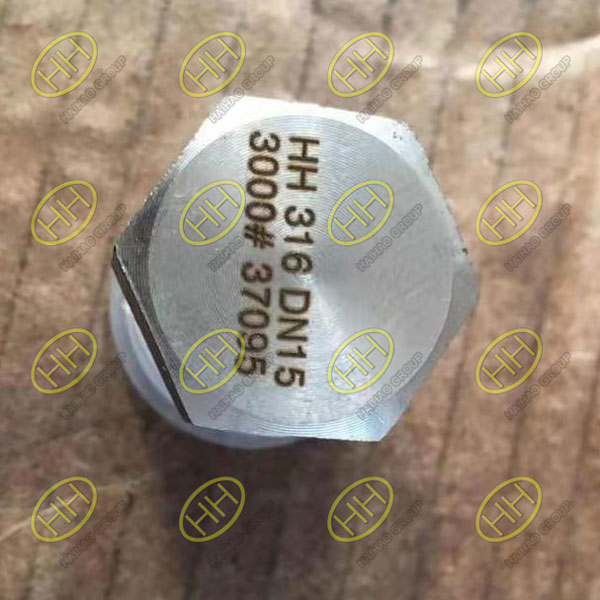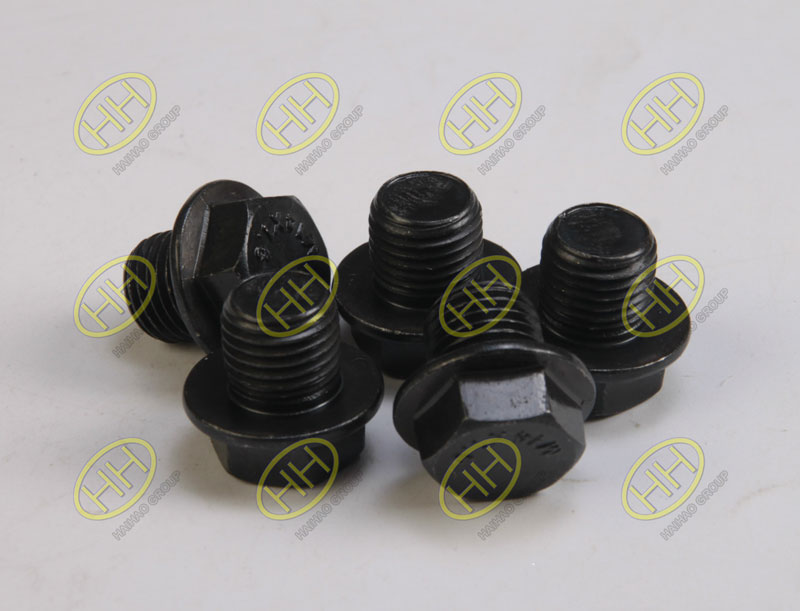Introduction of plug
What Is a Pipe Plug?
A pipe plug is an essential component used to close off or seal the end of a pipe or a pipe opening, ensuring no flow of liquids or gases in the pipeline. These fittings provide a secure, leak-proof solution, similar in purpose to blind flanges and caps, and are widely used in industries such as oil and gas, petrochemical, water treatment, food processing, and shipbuilding.
Unlike pipe caps that cover the external part of the pipe, pipe plugs fit inside the pipe’s opening, often through threading or welding, to prevent leakage or contamination.

PLUG 316 DN15 Producted By Haihao Group
Types of Pipe Plugs:
To meet diverse industrial requirements, pipe plugs are classified based on several factors:
By Thread Standard:
- Metric Threads
- British Threads (BSP)
- American Threads (NPT)
By Shape:
- Internal Hex Plug
- External Hex Plug
- Tapered Thread Plug
By Material:
- Plastic Plug
- Carbon Steel (45#) Plug
- Stainless Steel Plug
Copper Plug
By Surface Treatment:
- Plain (Oiled)
- Galvanized
- Nickel-Plated
- Chrome-Plated

Carbon steel plug
Technical Specifications of Pipe Plugs:
| Parameter | Specification |
|---|---|
| Size Range | DN15–DN1200 |
| Wall Thickness | SCH5 – SCH160 |
| Standards | ASME B16.11, DIN, JIS, BS, GB/T, JB, SH, HG |
| Applications | Water, Oil, Gas, Food Processing, Petrochemical, Shipbuilding, Nuclear Power, Fertilizer, Medical Equipment, Machinery |
| Packaging Options | Wooden Cases, Cartons, Wooden Supports |
In 2019, Haihao Group supplied stainless steel hex plugs conforming to ASME B16.11 for an oil pipeline maintenance project in the Middle East. These plugs provided excellent sealing performance under high pressure and corrosive environments, meeting all client requirements for safety and durability.
Applications of Pipe Plugs in Industry
Pipe plugs are crucial across various sectors due to their ability to provide reliable sealing performance in both low-pressure and high-pressure systems. Common applications include:
- Oil & Gas Pipelines: For temporary or permanent sealing during maintenance or system modifications.
- Chemical Processing: To safely block pipelines carrying hazardous substances.
- Water Treatment Plants: Used in pipeline testing or isolation procedures.
- Shipbuilding & Marine Engineering: For closing off redundant pipeline connections or testing segments before full operation.
- Food & Beverage Industry: To ensure sanitary pipeline sealing and prevent contamination.
Frequently Asked Questions (FAQ)
Q1: What is the difference between a pipe plug and a pipe cap?
A: A pipe plug fits inside the pipe opening (usually threaded), while a pipe cap covers the outer pipe end. Both serve as sealing devices but are used for different connection types.
Q2: Can pipe plugs be used in high-pressure systems?
A: Yes. Especially when made from carbon steel or stainless steel and produced according to ASME B16.11, plugs are suitable for high-pressure and high-temperature pipelines.
Q3: What surface treatments are recommended for corrosion resistance?
A: Galvanizing, nickel plating, or chrome plating can significantly enhance the corrosion resistance of pipe plugs in harsh environments.
Pipe plugs play a vital role in ensuring the safe, efficient operation of pipeline systems across multiple industries. Whether you need carbon steel, stainless steel, or custom-designed plugs, Haihao Group provides high-quality, standard-compliant solutions backed by decades of manufacturing expertise. Email:sales@haihaogroup.com
Related Article:
